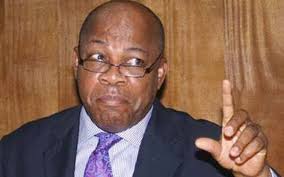Short of calling for a declaration of a state of emergency as a way rejuvenate the Nigerian economy, maritime lawyer and former President of the Nigerian Bar Association, Olisa Agbakoba, at the weekend in Lagos called for the urgent creation of an omnibus Act of the National Assembly that focuses on economic recovery.
Agbakoba who was guest at the monthly forum of the Finance Correspondents Association of Nigeria (FICAN) held in Lagos on Friday, recalled that such an Act was deployed by the Barak Obama administration to revamp the U.S in the aftermath of the global economic crisis.
Speaking on “2021 budget and the economy,” said such a strong legislation, he warned, will however require critical thinking, collaboration with the private sector and the political will to enforce its provision.
At a time government is in dire need of revenue, he lamented the poor implementation of the Cabottage Act, which ought to benefit Nigerian economy in terms of jobs, revenue, expertise and technology transfer. It is no secret, for example, he continued, that the international oil companies do not abide the local content law in their operations, such as patronizing Nigerian shippers, insurers, just as government loses huge tax revenue.
From the maritime sector alone, he estimated that the Nigerian economy loses $2tr yearly.
Agbakoba who was recently appointed to head the federal government’s Committee for the Development of National Arbitration Policy, drew attention, for example, to the huge opportunities waiting to be harnessed in the digital economic space.
“We need a radical transformational change in the way we have been doing business,” he said, lamenting that Nigeria, as it is today has become “structurally damaged and can only be fixed by a massive economic and structural rejuvenation.”
One way of doing this, he continued, is by what he called “rebalancing,” or devolution of those powers the Federal Government does not need from the exclusive list to states of the federation.
In view of the economic challenges face the country, Agbakoba challenged the government to reduce cost of governance, even as he decried the absence of a social welfare scheme, resulting in the continuous neglect of the nation’s poor and vulnerable citizens.
One way the federal and state governments can free up idle or dead capital for the good of Nigerians, is to make property title documents easily accessible, thereby making it possible for property owners to use them as collaterals for loans.
Talking about the recent #EndSARS protest that was hijacked by hoodlums, Agakoba lamented that the excluded poor masses exhibited pent up resentment against the state.
For him, “it is not enough to say that you are giving food to school children. Such programme has to be institutionalized. If government continues to spend 40-60% of its budget (on) paying just one million Nigerians who are in public service, then there is an inbalance.”
According to him, a lot of government borrowing goes into paying salaries, in an environment of so much duplication and waste, urging the government to implement the Oronsaye report by drastically reducing the number of government parastatals, many of which do the same time.








